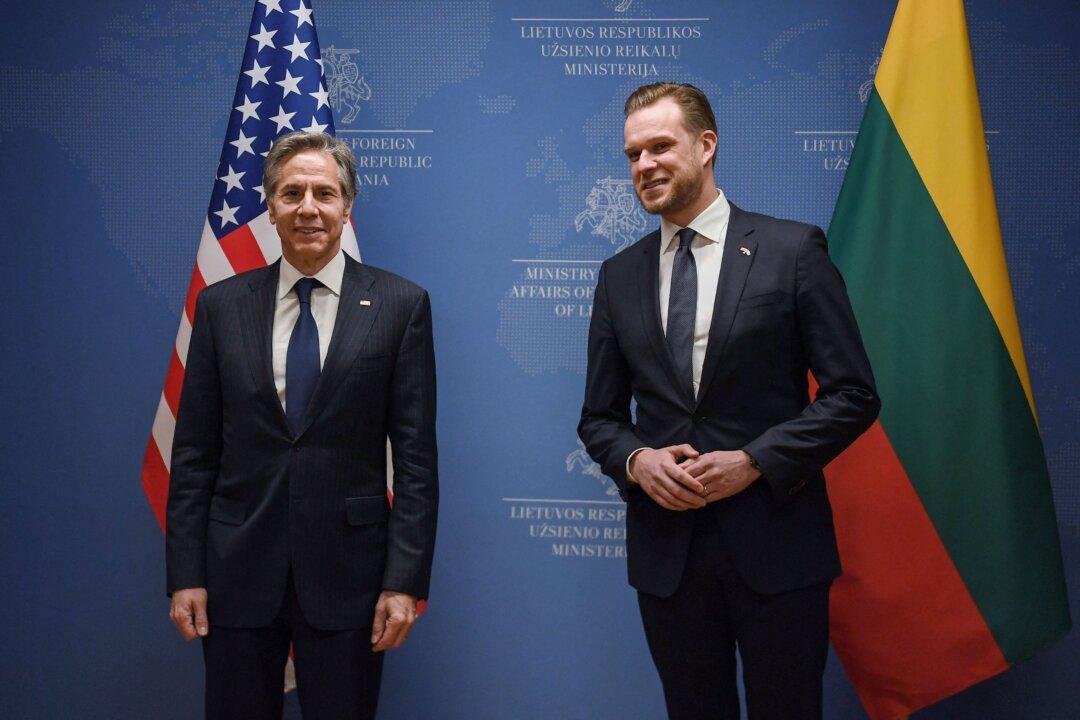Secretary of State Antony Blinken said on March 7 that China is all talk and no action when it comes to the Ukraine crisis, as Beijing refuses to condemn Moscow’s invasion of its neighbor.
“Beijing talks a lot about the importance of upholding international order, stability, respecting sovereignty,” Blinken said in Vilnius during a joint press conference with Lithuanian Foreign Minister Gabrielius Landsbergis.





